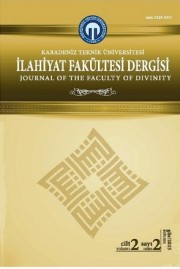
Kitap değerlendirme: Osmanlı Devletinde Fetvâ Eminliği (1826 - 1922)
The review of: Talip Ayar, Osmanlı Devletinde Fetvâ Eminliği (1826 - 1922), (Ankara: Diyanet İşleri Başkanlığı Yayınları, 2014) 266 s.
More...We kindly inform you that, as long as the subject affiliation of our 300.000+ articles is in progress, you might get unsufficient or no results on your third level or second level search. In this case, please broaden your search criteria.

The review of: Talip Ayar, Osmanlı Devletinde Fetvâ Eminliği (1826 - 1922), (Ankara: Diyanet İşleri Başkanlığı Yayınları, 2014) 266 s.
More...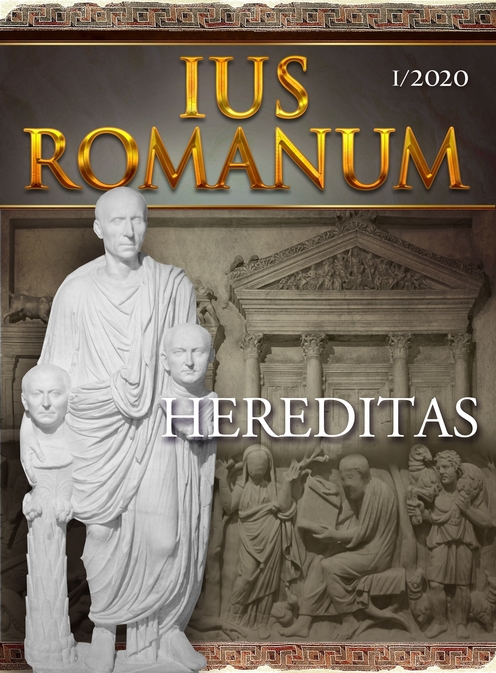
The article presents the terms and concepts of heir and inheritance, formed in the archaic era by solemnis mos and included in ius civile. Inheritance is analyzed as a cultural and legal-religious achievement with richer content than the ordinary transfer of property after the death of the testator. A comparison is made between inheritance by law (ab intestato) and by will the appointment of an heir by testamentum calatis comiciis and adoption by adrogatio. The basic and genetically related terminology for heir and inheritance passes into the legal tradition based on Roman law in both models of inheritance – by will and by law. Linguistically, however, "successio" has an expressive meaning, but it is the result of the reasoning of classical jurists and interpreting the models of succession on the occasion of death in civil and praetorian law.
More...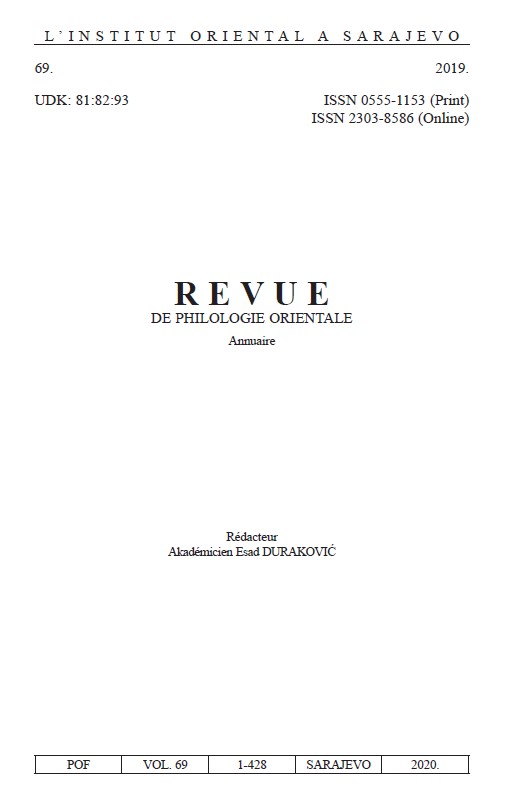
This paper aims to deconstruct the traditional narratives on the Ottoman financial and political strategies towards non-Muslim and Muslim subjects in the Western Balkans by re-examining the foundation, extent and consequences of the central government’s policy of demanding a payment of jizya tax not only from non-Muslims, as stipulated in the classical Sharia law, but from the Muslim population as well. Although academic community is aware of the existence of Muslim jizya payers in several regions of the Ottoman Empire, this paper argues that historiographic knowledge on the mentioned phenomenon is rather rudimentary as present studies on this topic are based on a very limited data while official financial records that contain information on Muslim jizya payers, such as the jizya registers from the Ottoman Bosnia, have still not been thoroughly analysed. Recognizing the need to include financial records into the account, the main research strategy of this paper was to identify and examine records of jizya payers which contain a significant number of Muslims in a taxpayer role as well as to compare and interpret this data with other financial, administrative and legal texts that could help us gain better insight into the phenomenon of Muslim jizya payers in the Ottoman practice. The main primary source for the analysis provided in this study was a register of jizya payers from the vilayet of Brod, in central parts of the Ottoman Bosnia, from the 1679, which have not been previously used in historiographic studies. On the basis of this financial register, it has been concluded that more that 90% of all jizya payers in the territory covered in the mentioned register were Muslims, which is an important and interesting fact that has still not been recorded in any other part of the Ottoman Empire.
More...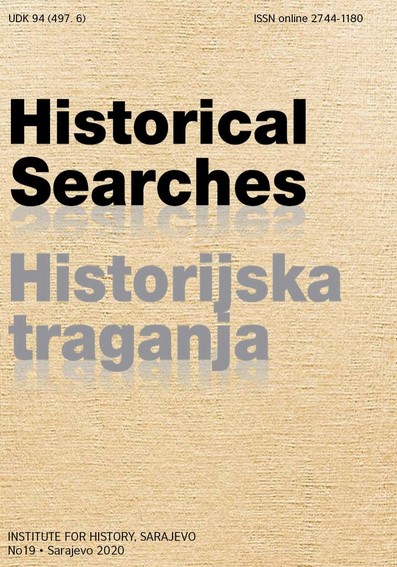
Review of: Hana Younis - Ehlimana Memišević, Sudovi: komparativna studija, Sarajevo: Centar za napredne studije, 2019, 462 str.
More...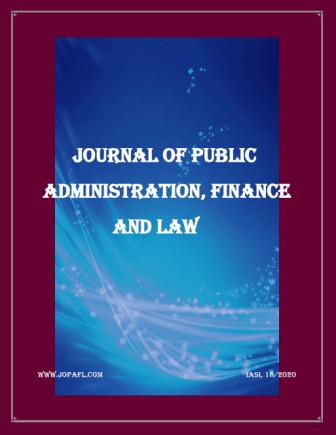
The concepts ethnicity, religion and politics are problematic even at the level of conceptualization. However, the interdependence of ethnicity, religion and politics as social dynamics in fostering the development of a nation has become imperative across the globe. Nigeria is multi-ethnic with cultural differences between its component ethnic groups has been crippled by series of political unrest, ethnic chauvinism, youth restiveness, corruption, religious bigotry and extremism, and other social vices that undermine national development. Therefore, it is against this backdrop that this study examines the effects of ethnicity, religion and politics on national development in Nigeria. A descriptive method was adopted and cross-sectional data were collected across the twenty five Local Government Areas in Delta State with the aid of a structured questionnaire. Non-probabilistic sampling techniques comprising of purposeful and convenience techniques were used to elicit information via questionnaire from 400 respondents. Data collected were analyzed using correlation and regression analysis. The findings of the study showed that ethnicity, religion and politics negatively and significantly impacts national development in Nigeria. On the basis of these findings, the study recommends among others that the nation needs a purposeful leadership that has a vision of how to place its citizens at the centre of political project without recourse to ethnic chauvinism and sees acquisition of political power as not an end in itself but a means for serving the collective welfare of its people regardless of their ethnic origin.
More...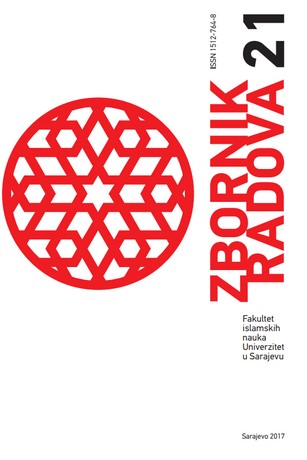
This essay addresses the main theses in the book Myth and Reality in Contemporary Islamist Thought by the Egyptian philosopher Fuʼād Zakariyyāʼ (1927-2010). A follower of a critical school of thought, Zakariyyāʼ examines the impact of modern governmental and ideological (ab)uses of Islam, sharīʻa, and state adoption of sharīʻa. In his view, faith in God is primarily a moral vocation, so that sharīʻa and the body of sharīʻa law that later developed from the sources of Islam comprise a set of moral and ethical rules for individuals to follow, but without state sanction. He argues that Muslims should rely on contemporary developments, the product of intellect and reason, in organizing their governments and societies. Zakariyyāʼ advocates reading the major source texts of Islam in a dialectical relationship with the conditions of life in which human societies actually subsist.
More...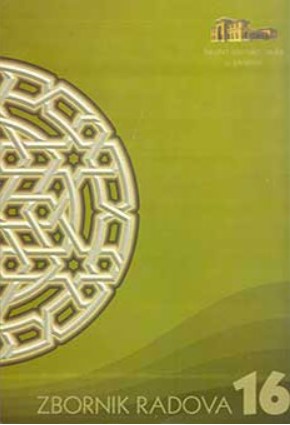
This paper aims to present the views of the Bosnian ulama about one of the biggest challenges facing the Bosniaks in their history in this area. This is an issue of migration or Hijra of Bosniaks from Bosnia at the time of the Austro-Hungarian Empire. The issue of migration of that time reveals a number of Bosniaks‟ dilemmas about their identity, homeland, relations between Sarajevo and Istanbul, to remain here or to leave, to fight or to accept imposed solutions, etc. The paper will also reveal the views or fatwas of the scholars outside Bosnia and Herzegovina, the official Istanbul, i.e. those who justified migration and those who did not. Different views on the same issue suggests the complexity of the then overall situation, different interests that intertwined over Bosnia and Bosnians, political un/orientation in the mirror of questioning Bosniak national identity, etc. The work also shows how Bosnian ulama responsibly and wisely responded to social challenge and offered appropriate solutions
More...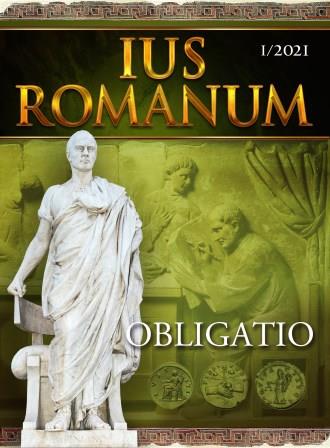
The text of the article was edited on the basis of a report presented to the XI Congress of Roman law scholars from Central and Eastern Europe and Asia, held in Craiova on 3 November 2007. It examines successively legislative policy on debt and government intervention on interest rates, limitation of interest rates supra legitimum modum, setting an upper limit for increasing the amount of debt. A special place is given to the concepts of proportionality and reasonableness in credit relations, as well as to the evolutionary interpretation of obligation and proportionality.
More...
The jurists of the late Republican period, under the influence of the Greek dialectics, formulated certain principles or rules across the generalization of decisions to which they had come across the study of particular cases. They were trying to solve the cases that were appearing ignoring any type of rules or rather without knowing that across some of these decisions they were constructing rules that would come to the present day. Along this work there will be studied the origin and evolution of the roman regulae iuris, where the jurists, without realizing elaborated a corpus of rules that have been and are used not only for the juridical classifications of the Civil Law, but also of the Common Law.
More...
Starting from a general vision of Roman law regarding obligations, this article analyzes the relationship between the exact fulfillment of the former and the creditor satisfaction. In addition, based on the sources, some personal reflections are made as for the procedural claim in case of non-compliance, the payment made after the litis contestatio, and a review of the means of proof in the Roman private process in the Italian doctrine.
More...
Although not always distinguished as an explicit procedural phenomenon, abusus iuris doctrine has a long history and is familiar to all periods of historical development of civil procedure. As one of the basic principles of contemporary civil procedure, if analysed historically, it can be noted that the prohibition of abuse of procedural rights is neither modern nor contemporary in the legal meaning of those terms, nor in the historical retrospective loses the importance that characterize it in the modern civil procedure. Within the paper, the focus is set on the administration of justice in ancient Rome with particular interest on the institute of abuse of procedural rights. The paper discusses the beginnings and development of organized methods of legal protection in Roman civil procedure with the aim to determine its basic characteristic through different stages of its development and to analyse the frivolous behaviour of the parties before the tribunal and procedural mechanisms for supressing vexatious litigation. The historical retrospective is covering different periods of development of the Roman litigation. The main drive for analysis of the historical dimension of civil procedure in ancient Rome is to analyse the genesis and evolution of the principle of bona fides in Roman civil procedure.
More...
This paper examines some of the legal perspectives of Rome’s fight against piracy. The main objectives of the study are to touch upon the notion of piracy in Republican Rome and the actions that were taken by the State against these „sea bandits“.
More...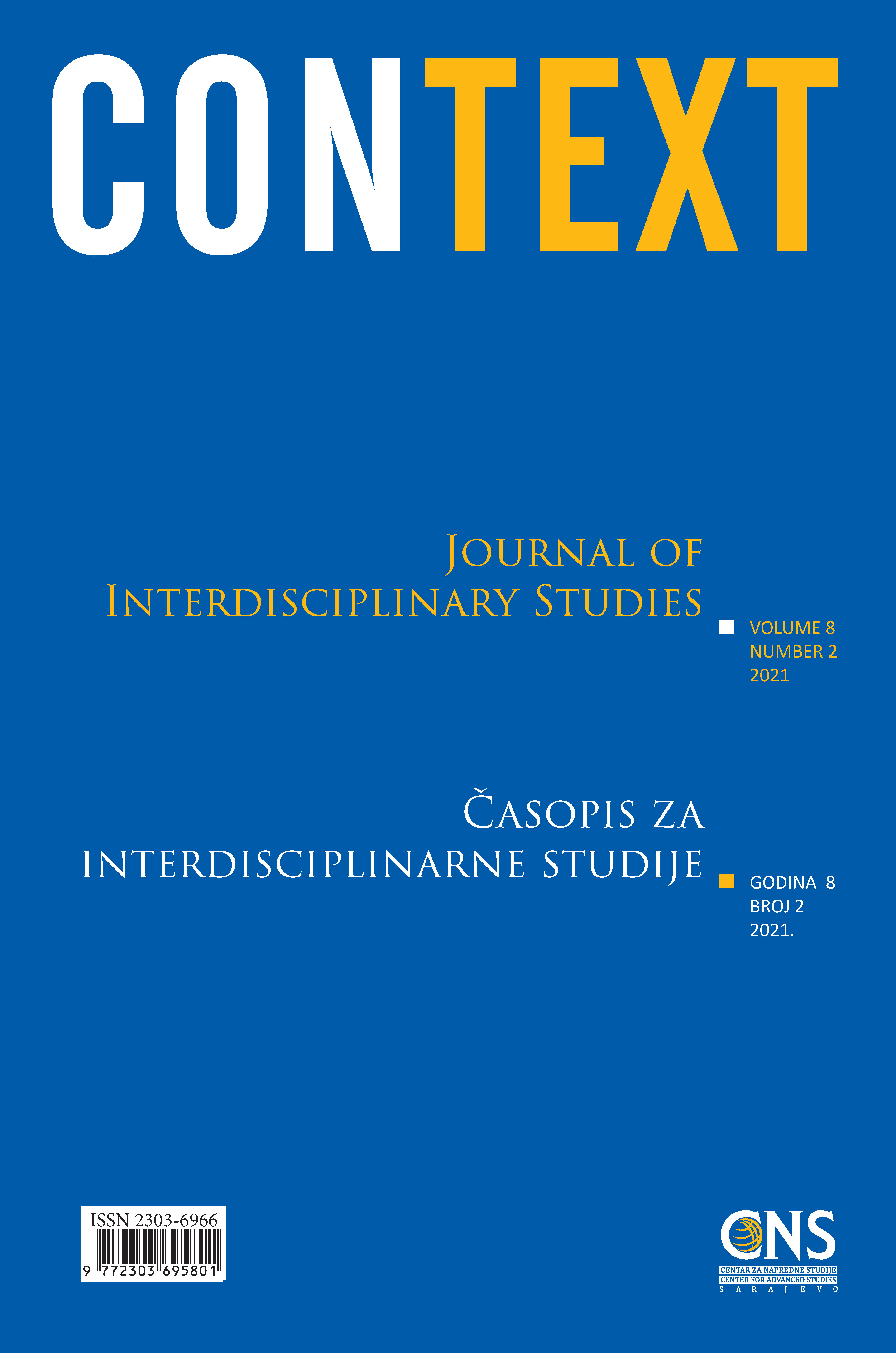
This study investigates end-of-life decisions through Islamic and legal comparativeapproaches by focusing on the Albanian context. The methods applied in this paperare critical legal reasoning and legal comparison. The goal of this research is toreview the impact of the Islam legal culture (Qur’an and hadith) on the Albanianlaw of end-of-life decisions. From a legal approach, this paper underlines the unconstitutionality of the Albanian Code of Medical Ethics. In addition, the review ofthe Islamic literature on medical jurisprudence demonstrates the attitude of Muslimcommunity regarding end-of-life decisions in addition to scientifically examine thevarious rules governing end-of-life situations codified in the Islam legal sources byonly considering the Qur’an and hadith. This investigation aims to understand the similarities and differences between these two different approaches by also underlyingthe importance of Islam approach on end-of-life situations on the Albanian legislation.
More...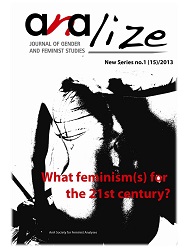
Feminism and the women's movement in Malaysia are products of specific historical and political contexts. Following this logic, the language used in feminist activism can also be seen as product of similar contexts. The focus of this article is the current state of the feminist movement in Malaysia and its linguistic framework as the effects of changes in language policy. This article then considers the use and relevance of feminist theory in Malaysian feminist activism as linked to the predominance of English in Malaysian feminist discourse. This article also argues that the predominance of English poses challenges to the inclusion of working-class class feminist agendas but offers opportunities in strengthening transnational feminist linkages. Language thus becomes an underlying issue which may explain the successful inroads and setbacks faced by feminist organizations in Malaysia. The issues of language and hegemony of this article couches itself within ongoing debates on Anglophone hegemony in feminist discourse in non-Western nations and how feminist concepts in English are engaged in multilingual contexts.
More...
We will make a brief review and a summary analysis of the most characteristic and particular profiles of the iurisdictio Irnitana, of the more traditional notion of iurisdictio, and, in a more detailed way, we will focus our attention on the competent organs and courts (duumviri, aediles, prefects, municipal senate and court of five decuriones). We will also highlight the different options of the adversarii in the different courts and the special relevance granted by lex Flavia Municipalis to the agreements of the subjects in the lawsuits of the municipality.
More...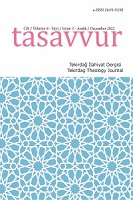
According to Islamic law, there are rules and prohibitions that Muslims must follow in their actions and transactions. The prohibition of interest has been decisive in many actions, especially in debt. Accordingly, Muslims cannot put forward a condition of interest in their debt, nor can they take any transactions under this condition. Many jurists viewed interest not only as an excess of the debt but also as any benefit that the creditor would receive from the debtor other than the amount of the loan, and they evaluated it within the scope of interest. Since the lender of “qard”, which is generally used to define the debt, should not receive anything in return and should expect its reward from Allah, this was called “qard al-hasen”, quoting the relevant verses of the Qur’an, and Muslims tried to meet their credit needs through qard al-hasen. However, in some cases, people had difficulty obtaining the credit they needed, and especially in the modern period, the need for credit has increased both individually and institutionally. Therefore, Muslims tried to meet their need for qard by resorting to different ways within the limits of the Shariʽah. While applications based on transactions such as sukuk, mudaraba and murabaha and those based on intermediary transactions such as the purchase and sale of goods or partnerships were developed, applications based on direct debt without resorting to such transactions remained almost nonexistent. However, from the expressions in the books of classical fiqh, it is understood that the juʽalah, which is defined as “promising a reward in return for an action”, can be used for obtaining qard under certain conditions. In this type of juʽalah, which can be named as juʽalah ala al-iqtirad, a person in need of qard promises a certain reward from third parties to the person who provides him qard. Considering that there is a qard in question in this transaction and that the debtor pays more than the qard he has received, it is necessary to examine the opinions about this transaction's relationship with interest and its validity. The main focus of the research will be answers to questions such as the conditions that the aforementioned juʽalah transaction must meet to be valid, in what ways this transaction differs from interestbearing transactions, and within which limits.
More...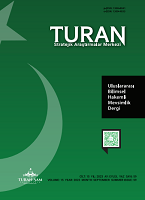
Foundation organizations had a very important place in the social, cultural, economic and legal structure of the Ottoman Empire. The main sources of reference for archival research on foundations are the series of books such as waqfiye, hurûfat, atik, ahkam, etc. In the ahkam books, which are among the main series of books in the Divani Humay, there are many complaints about the functioning of foundations, problems faced by foundation officials, interventions in foundation revenues and lands belonging to the foundation, claims of sonship in foundations, maintenance and repair of foundations. In this study, the problems of foundations reflected in the Erzurum Ahkam books numbered 1, 3, 5, 7 and 9 and the proposed solutions to these problems are analyzed.
More...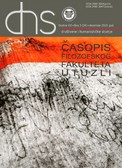
Review of: Admir Čavalić i Resul Mehmedović (ur.), Slobode u muslimanskom svijetu, Udruženje građana „Multi”, Tuzla, 2022
More...
One of the figures who deeply influenced Islamic thought in general and fiqh thought in particular is undoubtedly Qāḍī 'Abd al-Jabbār (d. 415/1025). Most of his life took place in the 4th/11th century and he was the most important representative of the Basra Muʿtazilites after the Jubbāʾīs. With his works in both theology and the methodology of jurisprudence, he was regarded as a groundbreaking scholar not only in Muʿtazilite circles but also in Sunnī circles. According to the common opinion of many Sunnī jurists, 'Abd al-Jabbār is one of the most important figures in the field of usul al-fiqh after Imam Shāfi'ī. Having been so influential in the fields of theology and methodology, it has been a matter of curiosity in which systematic framework Qāḍī ʿAbd al-Jabbār conducted his practical life and whether he maintained his allegiance to the Shāfiʿī madhhab, which he had adopted as a student. In the relevant literature, the claim that Qāḍī ʿAbd al-Jabbār adopted the Shāfiʿī madhhab throughout his life has been widely voiced. So much so that in the works of tabakāt, where Shāfiʿī jurists are introduced, ʿAbd al-Jabbār is included as a Shāfiʿī. This understanding, which has continued until today, has become a continuing acceptance in academic studies. But is this the reality? In pursuit of this question, the present study examined the issue in the following steps: First, the claims in the literature about Qāḍī 'Abd al-Jabbār's path in fiqh are presented, and then 'Abd al-Jabbār's position in Mu'tazilite jurisprudence is presented. After mentioning the distance of the founding imam of the sect, al-Shāfiʿī (d. 204/820), who is claimed to have been adopted by a Muʿtazilite scholar, from the Muʿtazilites and even his struggle with them, Qāḍī ʿAbd al-Jabbār's opposition to Imam al-Shāfiʿī's famous views on usul was identified. This study, which proceeds by comparing ʿAbd al-Jabbār's views on usul with Imam Shāfiʿī's views on usul, concludes that his claim that he adopted the Shāfiʿī madhhab in the practical field is not very accurate. Conducting the comparison through the six (6) most distinctive issues of Shafi'i juristic thought, the study shows that 'Abd al-Jabbār clearly opposed Imam Shafi'i and the Shafi'i jurists. These six issues, which are among the most important topics of debate in Islamic legal methodology, are as follows: Whether the Qur'ān and Sunnah can abrogate each other, the prerequisite for the acceptance of the Prophet's words and deeds is their submission to the Qur'ān, that is, the determination of whether they are compatible with the relevant regulation of the Qur'ān in order to be evidence, and istihsān, which means abandoning the ruling reached as a result of syllogism on the basis of a justification and making another ruling, In the event that the new issue awaiting a solution is similar to two or more principals/makisu'n-'aleyh, the syllogism of shabah, which means to give the ruling of the new issue in question to this original by taking into account the original that is thought to be the most similar in many respects, whether the proof of the opposite concept, which means the transfer of the opposite meaning of a word, i.e. the opposite meaning of a word, to the issue that is the opposite of the issue in that word and whose ruling is not specified, should be considered as a sahih istidlal, and the meaning of the imperative.
More...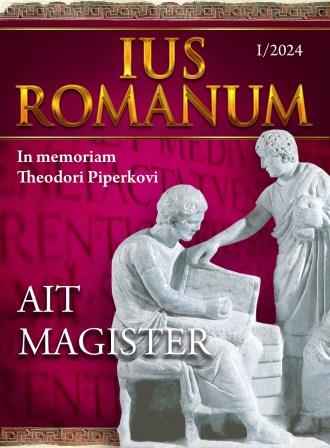
The article is devoted to the system of punishments in Roman law. Systematization of the most common and popular punishments. The Roman legal concept of punishment and one of the main principles in Roman law - Nullum crimen sine lege, nulla poena sine lege - are examined. Some basic criminal law institutes are also presented.
More...